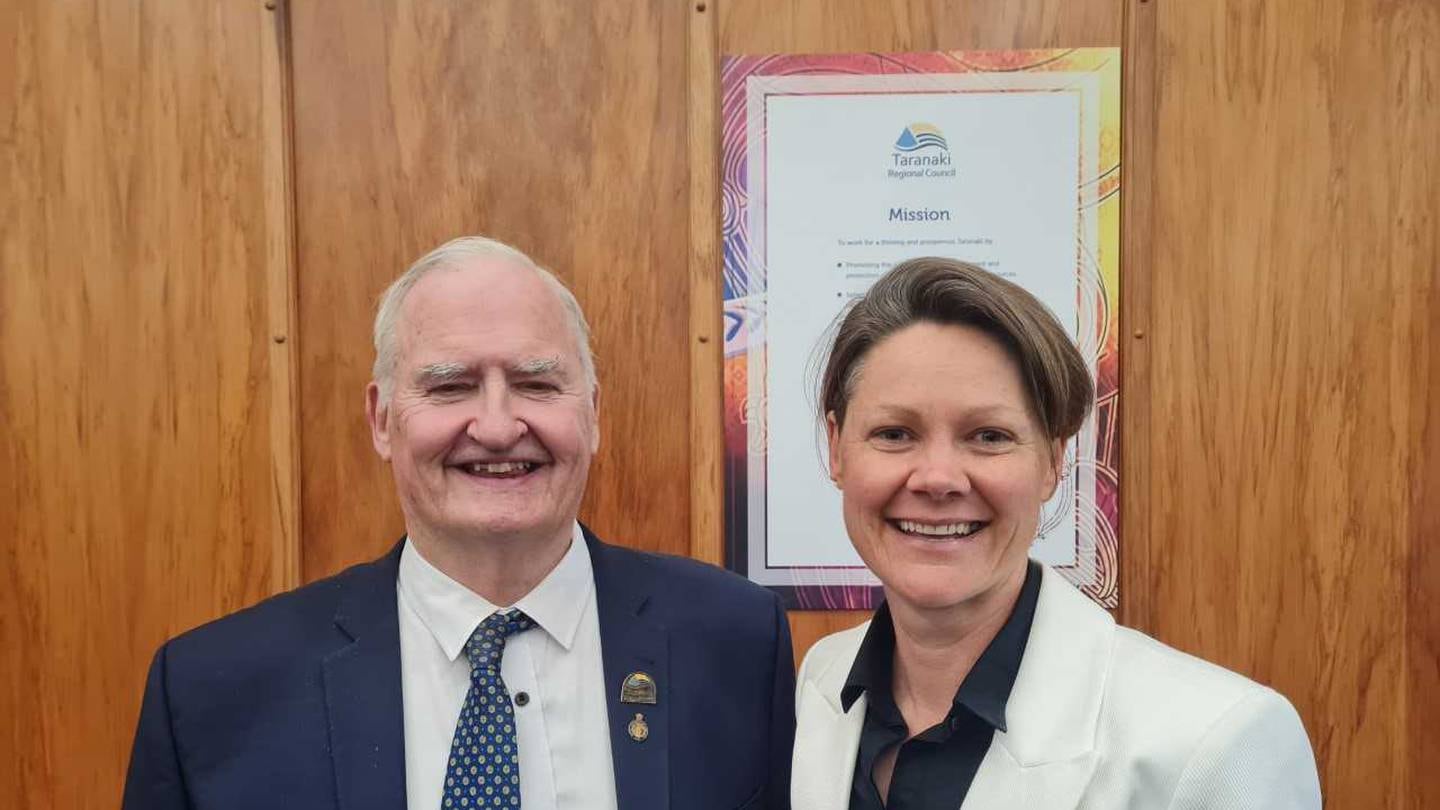Taranaki Regional Council has lost the confidence of its iwi representatives after councillors blocked debate on the contentious Treaty Principles Bill.
The six iwi reps say councillors ought to consider such significant issues.
Last month, deputy chair Neil Walker moved fast to quell discussion of a submission on the Bill, despite it being written-up by order of his chair Charlotte Littlewood.
Iwi representatives on council committees have formally told Littlewood that’s not good enough.
The six reps wrote that they’re committed to working together to benefit the regional community.
“However, we have lost confidence in TRC as an impartial governing body.
“We encourage our regional councillors to consider carefully matters of significance such as this and display the professionalism and due diligence expected of the office you hold.”
TRC chair Littlewood said relationships with mana whenua are “really important” and with a busy 2025 ahead she wanted to “have a good kōrero about how we do that.”
“I look forward to hopefully meeting kanohi-kt-te-kanohi (face-to-face) soon and just working through people’s concerns and the actions of the council.”
At the council’s December meeting – after a quarter-century at the table from nine election wins – a petulant Walker declared TRC “not a political body.”
“I certainly don’t want to be sitting here time and time again, sending the Government political messages about various things… lecturing the Parliament on everything.”
“I just think it’s too divisive. I think it’s not an appropriate thing, so therefore I’m just saying at this stage we don’t want to make a submission.”
Walker forced a vote and with only chair Littlewood and councillors Bonita Bigham and Susan Hughes up for the kōrero the submission was silenced.
“While we agree that the Bill is divisive, polarising, and controversial, we also believe that healthy debate plays a critical role for those elected to represent our region,” the iwi reps’ letter said.
Representatives appointed from each of the region’s waka – Aotea, Kurahaupō and Tokomaru – sit on TRC’s powerful Policy and Planning Committee and its sister the nitty-gritty Operations and Regulatory Committee.
All six signed the letter – Peter Moeahu, Tuhi-Ao Bailey, Mitchell Ritai, Richard Buttimore, Anaru White and Dion Luke.
They also asked Taranaki Iwi Chairs to support the pushback at their first 2025 hui.
Taranaki iwi chair Jacqui King didn’t need a meeting.

“I’m more than comfortable to endorse via this email - and add that we seek reconsideration of their decision [to not discuss the Bill].”
Submissions on the Bill closed January 7 and Littlewood said it made a re-run of the topic unlikely.
“It’s more a matter of us sitting down and having discussions together as people, rather than re-debating a council agenda item.”
TRC routinely submits on law changes and Walker has for decades supported “sending the Government political messages” from the farming lobby.
The iwi reps said his U-turn was damaging.
“For councillors to choose an apolitical stance for this Bill creates doubt and serious reputational risks for councillors’ credibility and accountability.
“That the draft submission was dismissed without a robust discussion places councillors in a similar light to the existing coalition Government, whereby decisions are made on anecdote and innuendo rather than the advice of expert operational staff.”
The Principles of the Treaty of Waitangi Bill was written by ACT leader David Seymour and is a Government bill.
National and New Zealand First vowed to vote it down after the six-month select committee hearing.
The quashed TRC submission said the Bill would “not bring any added value to the relationships we have or the practical work that we need to do in partnership with tangata whenua.
“Indeed, there is a very real danger that it will undermine existing relationships and stymie the good work being done.”
The Treaty was central to council work: the Resource Management Act, for example, required the principles of te Tiriti be taken into account.
“The Council is dependent on effective and efficient legislation… to serve its community.
“Council does not believe that the Bill meets either of these tests and is concerned that a deterioration in Crown-Māori relations will ultimately lead to poorer legislation, worse community outcomes and make Council’s ability to do its work more challenging.”
Lack of consultation with Māori was “disappointing”.
“For one party to unilaterally seek to change the Treaty’s interpretation and application without proper engagement with the other is a breach of that agreement and the high level of trust that needs to exist in such relationships.”
It said the Waitangi Tribunal found Seymour’s new principles “do not accord with existing jurisprudence on the Treaty principles, or the historical circumstances of the text and spirit of the Treaty/te Tiriti.”
“The Bill risks fostering greater division and disorder. As noted by the Waitangi Tribunal, this will bring significant prejudicial impacts on Māori that ‘cannot be overstated’.”
LDR is local body journalism co-funded by RNZ and NZ On Air




